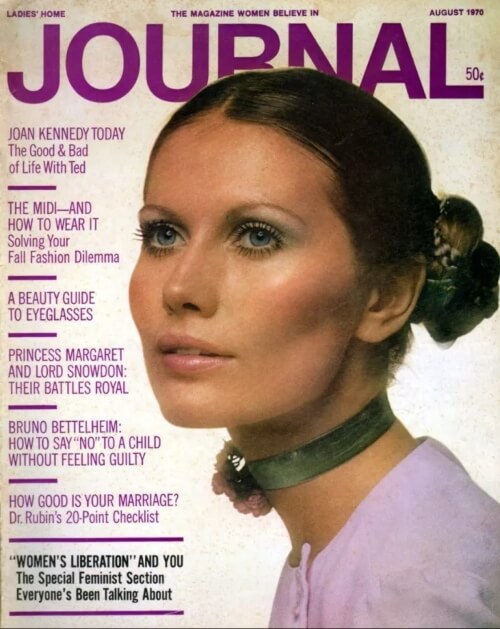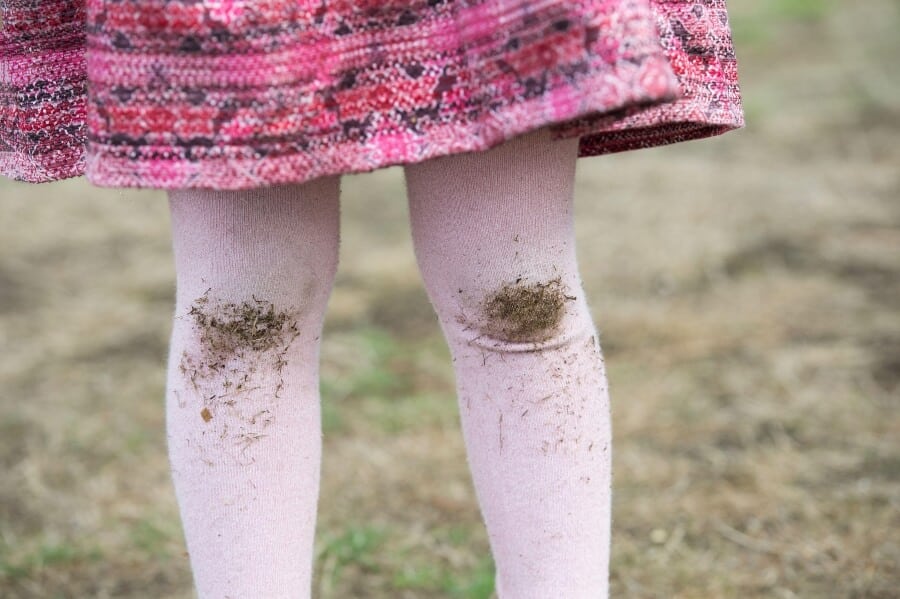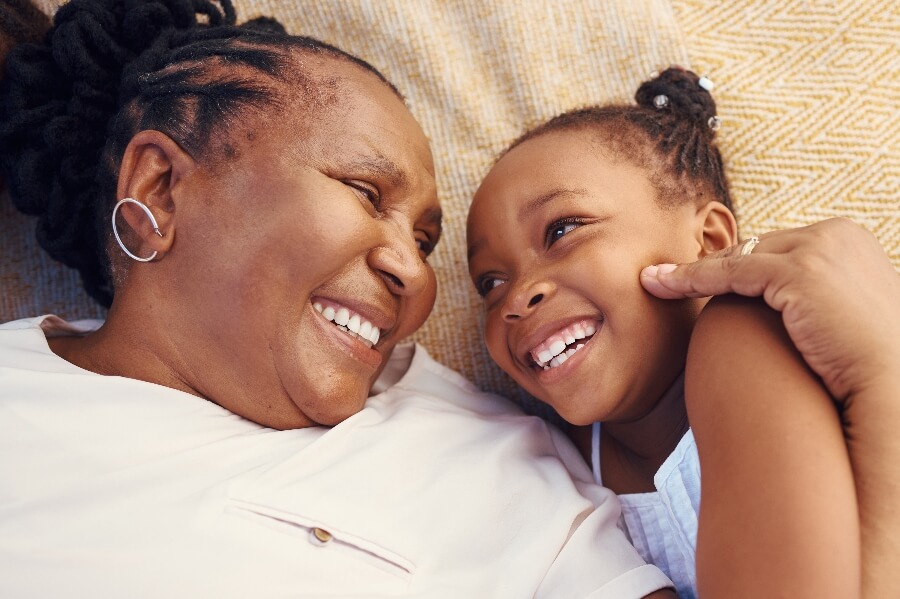Thinking back, I realize I had many early signs that I was a feminist, which continued as a constant thread through my life with growing awareness and frustration at the social inequities. The world just didn’t seem fair. At first, I wondered why. Then, in succession, I grumbled, got angry, and eventually depressed. And, if you can believe it, my aha! moment—what I consider the birth of my feminism—came with the issue of a very mainstream magazine.
I was born in 1946 and raised in the post-war era of strict gender roles for men and women. The unspoken rules for male and female behavior were embodied by everyone I met and validated with movies, TV shows, and magazines. Think Father Knows Best and the Donna Reid Show. It was the world as I knew it. I never heard the word “patriarchy,” witnessed any rebellion, or met any renegades.
Read More: A TV Dad Saved Me Growing Up, but Old Sitcoms Hurt Other Kids
Wondering Why
In grade school, there were things about being a girl that I just didn’t like. I would rather climb trees and build fires than play with dolls. I made my own sling-shot and hoped to join the boys’ Shooters Club. (Didn’t happen, no girls allowed.) I wanted to wear pants instead of dresses to the playground because, when you went up the ladder to the slide or to swing on the monkey bars, the boys would stand underneath to peek at your underwear. Not nice!
I was disappointed that they had a ‘girly’ side zipper instead of a front zipper like my brother’s, like real western jeans. Not cool!
My sister and I had to wash and dry the dishes every night after dinner while my brother could go out to join the street games. Not fair! And, when I got my first pair of jeans (dungarees), I was disappointed that they had a “girly” side zipper instead of a front zipper like my brother’s, like real western jeans. Not cool! My complaints were never taken seriously. I was dismissed as being a “tomboy,” which was considered a tolerable aberration.
Grumbling Along
Things got worse in high school when the discrepancy between what was acceptable for boys and girls became annoying. Girls were still not allowed to wear pants to school and were expected to be ladylike, while the boys seemed to have all the fun. I was envious of their exciting, daredevil adventures. They stayed out late, smoked and drank, climbed the water tower, hopped on and off the LIRR trains, dove (jumped) off the bridge across the Long Island Sound, and camped out overnight on the beach.
The discrepancy between what was acceptable for boys and girls became annoying.
That last one was the real killer for me. I begged and pleaded with my parents but was never allowed to camp out with my girlfriends. Too dangerous! Of course, we know what the danger was. The boys (and men) at the beach were the danger. How was this fair?
Getting Angry
It continued. In college, at SUNY New Paltz, we still had a dress code for women. Yet, that was minor compared to the infuriating rules about curfew. The women had to be in their dorms at 11 p.m. Monday through Thursday, midnight on Sunday, and 1 a.m. on Friday and Saturday—after which they locked the women’s dorm. If you were late, you had to ring a bell to get in, and you got into big trouble for it. Meanwhile, the men had NO curfew. We had to be locked up to be protected from them, and they could come and go as they pleased! That REALLY, REALLY seemed unfair.
Becoming Despondent
With access to birth control being what it was, in 1965, after one year of college, I became pregnant. I quickly married and, by the time my second son was born, I became a very depressed housewife. I loved my children, I truly did; I just hated being stuck home with them, isolated, all day, every day. I couldn’t drive, my friends were still on campus, and my family was 100 miles away. I had to depend on my husband to take me anywhere I needed or wanted to go and ask him for money for anything I needed or wanted to buy. Mind you, none of this was uncommon. My only social outlet was the other stuck-at-home moms who gathered for an hour or so in the common area of our apartment group to let the toddlers play together. We were friends by convenience rather than compatibility. It kept me from insanity, quite possibly from suicide. I felt trapped in some inevitable feminine destiny—a prison without parole.
I had to depend on my husband to take me anywhere I needed or wanted to go and ask him for money.
One afternoon while my boys were napping, a young man came to my door selling magazines. He was in college, and this was his summer job. I was desperate for company. I invited him in, sat him in a lawn chair in my living room (we didn’t have much furniture), and listened to his pitch. He was sweet and engaging and, although I really didn’t want one, I bought a five-year magazine subscription. My mother had slipped me $20 on her last visit, so I actually had hidden money of my own. With no forethought, I decided on Ladies’ Home Journal (LHJ) because I knew it from one of my babysitting jobs in high school. It cost me my entire stash.
The magazine itself was not enlightening nor intellectually stimulating. I read the monthly propaganda about celebrities, beauty, fashion, cooking, cleaning, and decorating. None of it really appealed to me. The idea of marriage counseling did interest me; I always read the advice column “Can This Marriage Be Saved?” The answer was consistently YES, as long as the wife was more understanding, more accommodating, more feminine . . . or so it seemed to me. The magazine did not report much about the social and sexual upheaval that was happening at the time or the ground-swell of unrest surrounding the Vietnam War. There were protests and demonstrations going on everywhere, my school friends went to Woodstock and sit-ins, things were blowing up, and the LHJ just kept rolling out the old party line.
My Epiphany

And then, on March 18, 1970, something important happened at the LHJ that trickled down into my life. The New York headquarters of the LHJ was occupied by more than 100 women—outraged feminists demanding a change in how the media portrayed women. They brought a mock magazine titled the Women’s Liberated Journal and displayed a banner with that same name from the office windows. For 11 hours, these women engaged in a raucous standoff with the magazine’s staff, bringing the magazine’s motto, “Never Underestimate the Power of a Woman,” into an unexpected light. They won a concession to publish a section of the magazine in August that would recognize a wider variety of choices for women’s lives as well as give greater attention to women’s issues.
Guess what? The psychologists decided that this marriage could NOT be saved . . . and the wife, the woman, went on to live happily ever after!
I was able to find an image on the internet of the issue that arrived at my door in August 1970. Its appearance was not at all different; the top stories were typical fare. The big item, “WOMEN’S LIBERATION” AND YOU, did make it onto the cover as the last entry, and it really rocked the boat with articles that celebrated the female body, outlined discrimination and sexism, and called housework “domestic slavery.”
And, guess what? In that issue, the psychologists decided that this marriage could NOT be saved . . . and the wife, the woman, went on to live happily ever after! This issue spoke to me. It gave me a new outlook. It gave me hope. It was my aha! moment. I started to think that it would be possible for me—one day, in some way—to get out of the box I was in and live a more fulfilling life. And, as they say, the rest is history.
It was the first mental step, followed by many, many mental, emotional, and physical steps on a long, bumpy journey to happy-enough ever after. A driver’s license, a part-time job, a divorce, three college degrees (one in Women’s Studies!), a professional career, a social life . . . all with the support of my family, my many wonderful women friends, and a few equally wonderful men.
I have immense gratitude for the women that staged that sit-in and all the others with their brave and continuing acts of protest that helped forge the path to equality we have been trudging ever since.
Read More: An Insider’s Perspective on Ms. Magazine’s 50th Anniversary
Some Favorite Feminist Quotes:
“Men are afraid that women will laugh at them. Women are afraid that men will kill them.”
—Margaret Atwood
“Feminism is the radical notion that women are human beings.”
―Cheris Kramarae
“I myself have never been able to find out precisely what feminism is: I only know that people call me a feminist whenever I express sentiments that differentiate me from a doormat.”
―Rebecca West
“I’m a feminist. I’ve been a female for a long time now. It’d be stupid not to be on my own side.”
—Maya Angelou
***
Mary Lou Mazzara writes the blog The Accidental Goddess.





















0 Comments